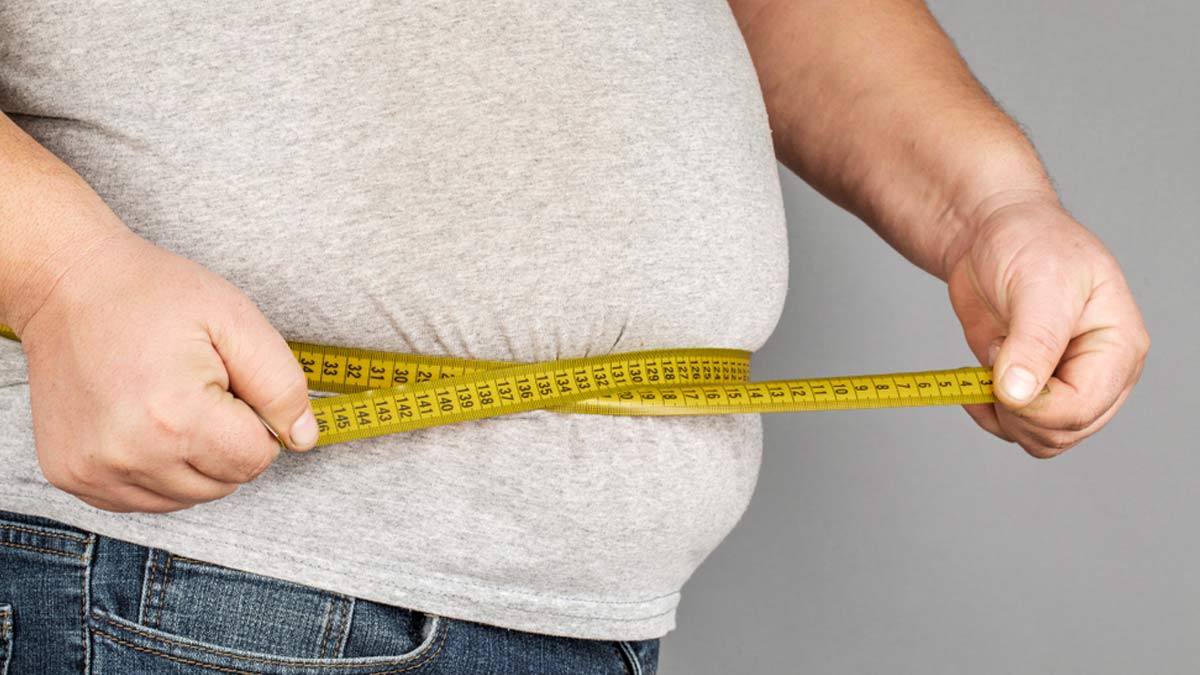
Heartburn is a common condition that mostly occurs due to an unhealthy lifestyle and bad dietary habits. It arises when stomach acid backs up into the oesophagus, the tube that carries food from your mouth to your stomach. This process is also known as acid reflux, which, according to research, is prevalent among people with obesity.
Table of Content:-
In an interaction with OnlyMyHealth, Dr Vivek Shetty, Consultant - Gastrointestinal, Liver, and Pancreatic Surgeon, Jaslok Hospital and Research Centre, Mumbai, explains the connection and shares ways to manage the heartburn associated with unhealthy weight.
Also Read: Obesity Is More Than Just An Aesthetic Problem, Here's How It Affects You
Obesity And Acid Reflux

Worldwide, more than 203 crore children and adults are currently living with obesity, and if current trends continue, reports suggest that it can go up to 207 crore cases by 2025.
Many people who struggle with unhealthy weight are also said to experience various health complications, of which heartburn is a common ailment.
Dr Shetty says, "Several studies have demonstrated the relationship between obesity and the increased prevalence of Gastroesophageal Reflux Disease (GERD)."
He describes GERD as a condition that occurs when the acid, which is supposed to remain in the stomach, refluxes into the food pipe and causes symptoms such as heartburn, belching, and water brash.

There are various causes for GERD, but in all, the common mechanism is the weakening of the valve (sphincter) at the uppermost part of the stomach, which results in the acid going into the food pipe whenever the abdominal pressure increases, he says.
Explaining further, he adds, "Obese people have more fat in the abdomen, and hence a higher than normal abdominal pressure, which promotes reflux."
A study published in the AGA journal followed 206 people and measured their weight, height, waist circumference, and how much acid was in their oesophagus. Researchers found that people with a higher BMI and waist circumference were more likely to have more acid exposure in their oesophagus.
Also Read: GERD: Foods That Trigger Acid Reflux and Heartburn
How To Maintain A Healthy Weight?

Dr Shetty suggests that a reduction in weight through dietary modification, exercise, and behavioural changes has been shown to reduce the symptoms of GERD.
"In an American study of 332 obese subjects, a weight loss of 13 kg over six months reduced the symptoms of GERD from 15 to 37%, with 60% of patients having a complete resolution of symptoms," he says.
Along with losing weight, the following lifestyle changes have shown benefits for those suffering from GERD:
- Avoiding heavy meals and taking smaller, more frequent meals
- Reducing the amount of tea or coffee consumed and stopping it after 6 p.m.
- Having an early dinner and staying upright for at least 2 hours after dinner
- Indulging in a moderate amount of exercise
- Stopping smoking and alcohol intake
- Raising the head end of the bed by six inches using blocks increases the resistance to the flow of gastric acid into the chest.
Bottomline
Obesity and heartburn often go hand in hand. This is because when you carry excess weight, especially around your abdomen, it puts pressure on your stomach, pushing the acid upwards into the oesophagus. This acid irritates the lining of the oesophagus, causing the burning sensation we know as heartburn. The good news is that losing weight can improve heartburn symptoms, and therefore many experts recommend proper lifestyle modifications. You can also consult a doctor to understand the best course of action.
Also watch this video
How we keep this article up to date:
We work with experts and keep a close eye on the latest in health and wellness. Whenever there is a new research or helpful information, we update our articles with accurate and useful advice.
Current Version